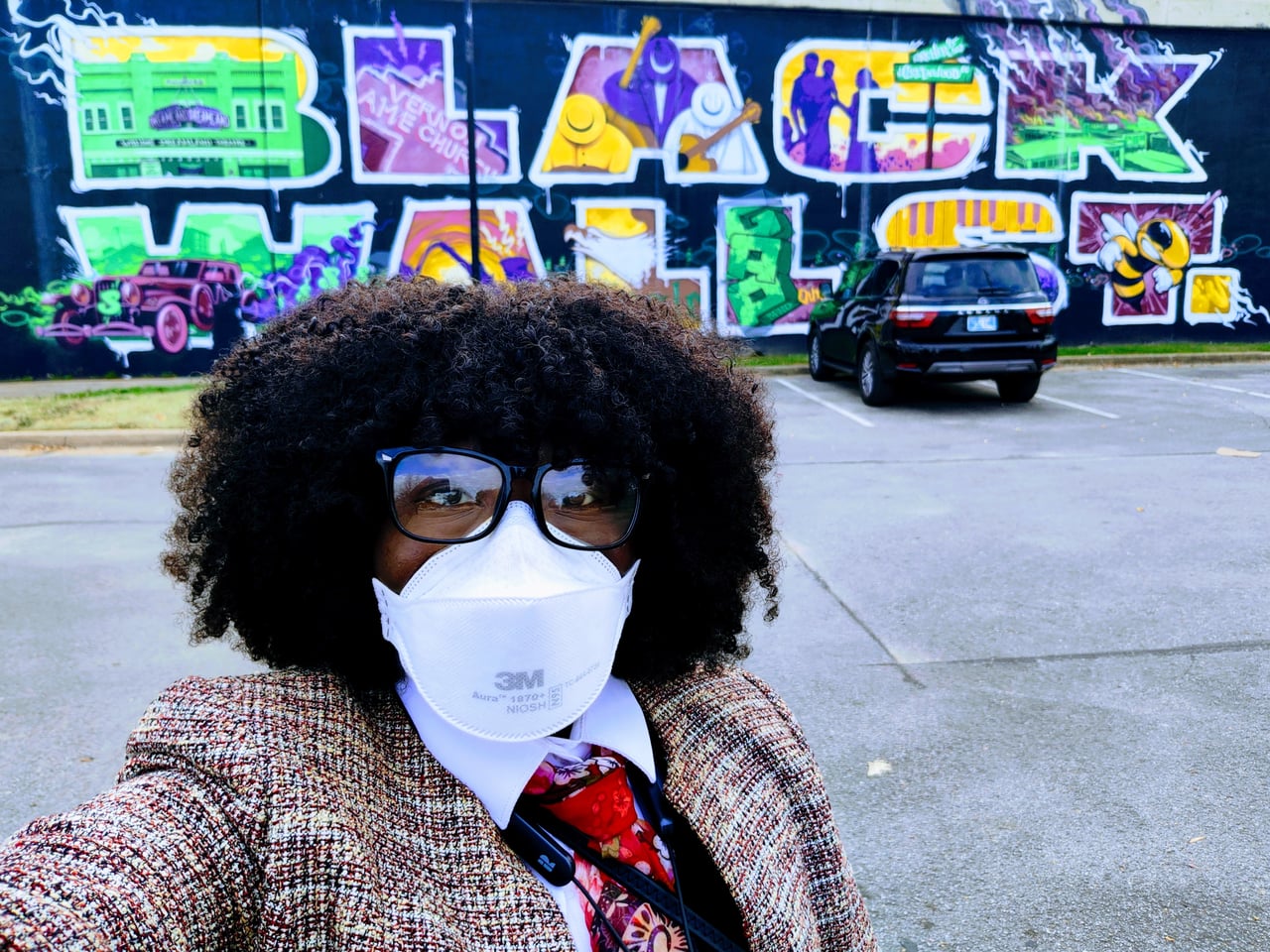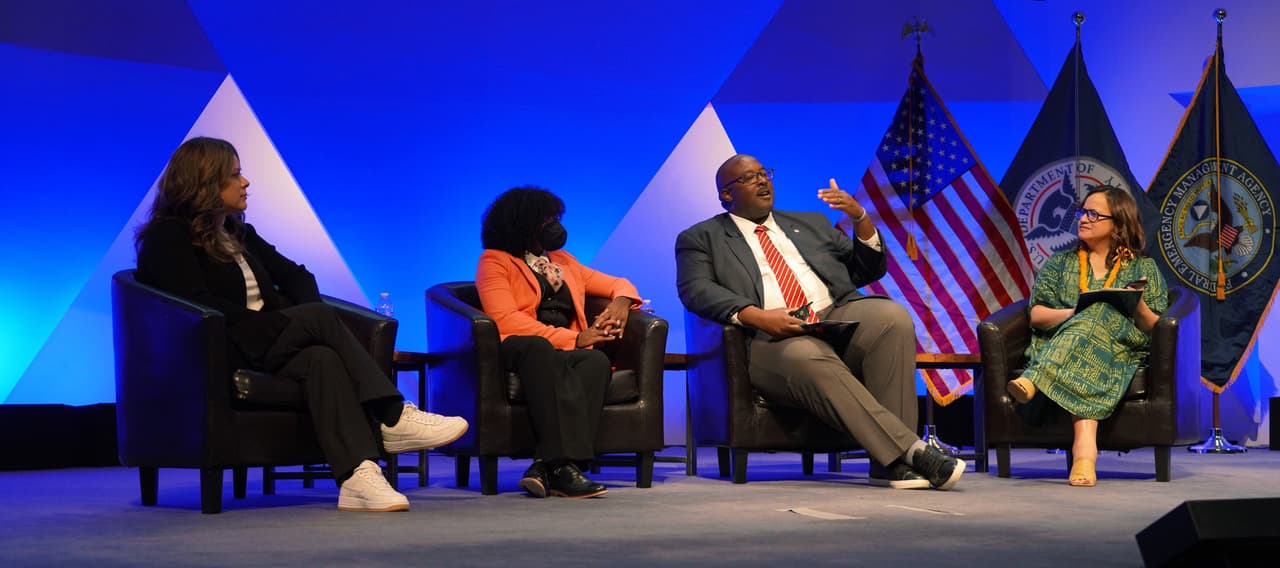I was in a meeting in February of 2024. The facilitator asked a question that I had never been asked before as an icebreaker: What is your superpower?
I vividly remember that I was attending the meeting via my phone and was walking to the office. My immediate response was "my purpose." My purpose allows me to push through the inevitable struggles, pressures, and pain. It is my beacon of light in the darkness: My purpose shines a light when I cannot see one at the end of the tunnel.
What is my purpose?
My purpose is to unleash the invisible power that every person and organization has to intentionally act for racial justice. I start with myself: This applies to me - how I navigate the different spaces I am in and the legacy I want to leave for my family, my communities, and broader society. It also applies to partnering with other people and organizations who have decided that they want to be better and do better in advancing racial justice and taking the necessary, intentional actions to facilitate collective care, collective action, and collective impact.
Invisible Power
Invisible power may conjure up different ideas in our minds, but it is a concept that is critical to approaches to power analysis and change.
Invisible power refers to the subtle and often unconscious ways that power shapes our thoughts, behaviors, and perceptions—without being openly seen or acknowledged. Unlike visible power, invisible power operates behind the scenes, influencing society by shaping beliefs, social norms, and values. This hidden force often leads us to accept the status quo without questioning it.
How Invisible Power Operates: Key Points
Shaping Perceptions and Beliefs:
Invisible power influences how we see the world and our place in it. It can cause us to internalize dominant ideologies, values, and behaviors, making these seem natural or inevitable—even when they may be harmful or oppressive.Promoting a Hidden Agenda:
This form of power often works by concealing information about rights, interests, and alternatives. By controlling information, manipulating language, or promoting certain narratives, invisible power prevents us from recognizing or challenging existing power structures.Creating Internalized Powerlessness:
Invisible power can lead us to believe we are powerless to change our situation. When we internalize this sense of powerlessness, we may become resigned to our circumstances and fail to recognize our own ability to challenge or change the status quo.
Why Understanding Invisible Power Matters
Recognizing invisible power is essential for all of us who are committed to social justice, organizational change, or personal empowerment. Invisible power involves hiding awareness of the rights and interests of the people through dominating ideologies that reinforce oppression. It leads to people accepting their circumstances as natural or unchangeable.
Challenging invisible power requires awareness raising, education, changing dominant narratives, and intentional action.
Click here to learn more about invisible power.
Intentional Action to Disrupt Oppression
Action to dismantled the systemic and interpersonal oppressive patterns of behavior, policies, and practice. In Paulo Freire's Pedagogy of the Oppressed, he lays out a philosophy and associated actions that are necessary to liberate people who are oppressed and those who oppress:
Critical Consciousness: Encourage critical thinking and reflection on social structures that perpetuate oppression. Help individuals understand the root causes of oppression and empower them to challenge these systems.
Dialogue and Communication: Foster open and honest dialogue to create spaces for marginalized voices to be heard. Encourage active listening and mutual understanding to bridge divides and promote solidarity.
Education for Liberation: Promote education as a tool for liberation rather than conformity. Empower individuals through education to critically analyze their reality and work towards social change.
Solidarity and Collective Action: Encourage collaboration and collective action to challenge oppressive systems. Building solidarity among marginalized groups can amplify their voices and create a stronger resistance to oppression.
Empowerment through Participation: Create opportunities for active participation and decision-making among marginalized communities. Empower individuals to be agents of change in their own lives and communities.
Reflection and Praxis: Emphasize the importance of reflection on action (praxis) to inform future strategies for disrupting oppression. Encourage continuous learning and adaptation based on experiences in the struggle against oppression.
Freire's approach provides a roadmap for opportunities that we have to shift oppressive dynamics of our relationships to ourselves, each other, and with institutions.
Reaching Our Full Human Potential
I often discuss five skills for personal and professional development that are critical for the growth, humility, humanity, and courage we need to advance racial and social justice: critical thinking, communication, conflict management, emotional intelligence, and racial justice literacy. I will discuss these skills more in future posts, but they are necessary to implement Freire's approach to liberation. They are also foundational skills for us to reach our full human potential in all aspects of our lives.
Even though this purpose is heavy and complex, the journey continues to mold me into a better person. I have a deeper appreciation for the people and world around me - this approach helps me to find everyday joy and have more meaningful experiences.



